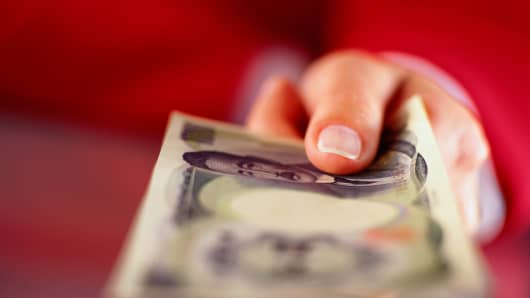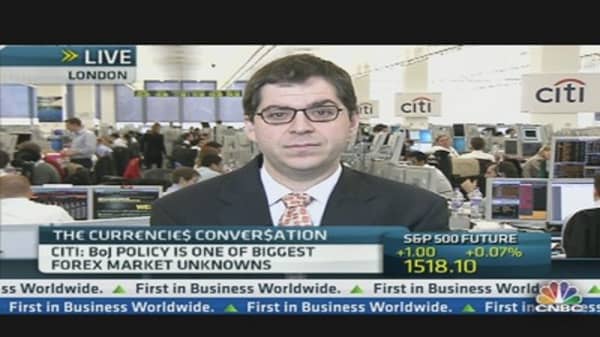The yen rose against the dollar and euro on Tuesday as disagreement between Japanese officials raised doubts over how aggressively Japan will ease its monetary policy.
Japanese Finance Minister Taro Aso said Tuesday he was not considering buying foreign bonds as part of efforts to ease monetary policy, a day after Prime Minister Shinzo Abe said this was an option.
(Read More: Muto Leads as Japan PM Close to Choosing Nominee for BOJ Chief)
Expectations Japan will take further stimulative steps to fight deflation have driven the dollar up 8 percent versus the yen so far this year. But the pace of the yen's fall has slowed lately as investors waited to see if words will translate into action.
"The comments suggested that there may be growing differences between the prime minister and the finance minister, which could threaten the pace of policy easing going forward," said Omer Esiner, chief market analyst at Commonwealth Foreign Exchange in Washington, D.C.




